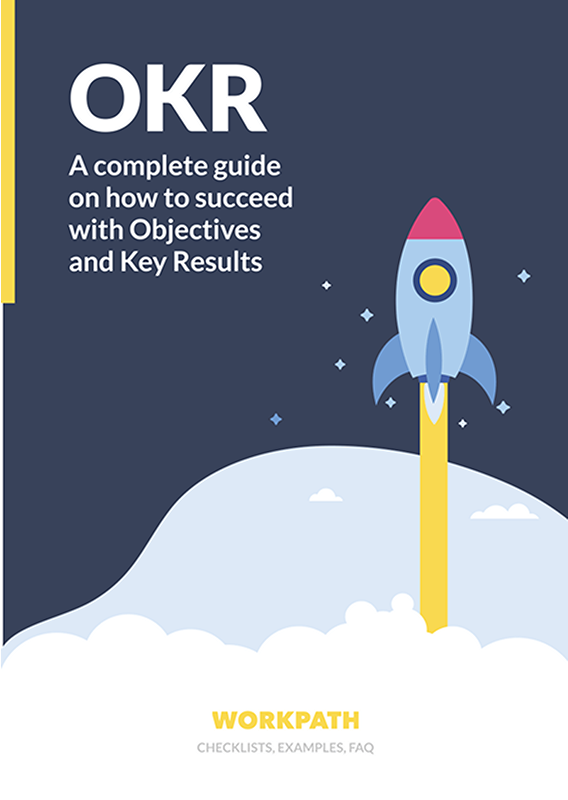In recent years, the Pharma industry has faced significant economic challenges, including increased cost pressures, disrupted supply chains, and misaligned and complex operations. As a result, many Pharma leaders are looking for ways to become more efficient, engaged and focused on their top priorities. Outcome Management, based on OKRs, has proven to be a highly effective framework for helping organizations overcome these challenges.
Pharma industry facing its toughest trials yet
Increased cost pressure due to inflation and disrupted supply chains
From an outsider's perspective, it might be easy and obvious to assume that the pandemic has had a positive impact on Pharma companies. But the reality looks very different. Recent global events and the inflation they have caused haven't spared the Pharma industry at all. In fact, the industry has experienced a dramatic increase in costs in recent years, driven by rising labor and raw material costs as well as higher costs for Research and Development (R&D) processes of new drugs. This is also due to supply chain disruptions, which increase the likelihood that these will still represent a potential loss of 25 percent of EBITA over a ten-year period.
R&D wasn't cheap before, but the inflating economy has pushed its cost to new heights. It is driving governments around the world to reduce the cost of public healthcare and medicines, which, in turn, puts pressure on pharmaceutical selling prices. At the same time, many Pharma companies are facing increasing competition in the market as patents expire. For many products, this has led to a flood of imitations that are sold more cheaply, thus cutting revenue for the inventors.
Despite these challenges, there is a growing interest in creating economies of scale and improving efficiency through the use of telemedicine, IoT-connected devices, and more targeted and customized treatments. These efforts aim to improve the quality of life for patients and reduce costs, with the ultimate goal of becoming more patient-centric, connected, and cost-effective.
Pharma, leader of complexity: Wasting resources through misalignment
The Pharma industry is widely recognized as one of the most complex industries. And this also makes it an unpredictable one.
This complexity is increasing steadily, becoming a major challenge in all key Pharma functions – something that also many Pharma executives realize. In a research by Accenture, 75% of the surveyed executives confirm that reducing complexity is a key factor for sustainable cost reduction.
But it remains difficult to remove:
- Complexity is deeply rooted in the operating models of Pharma companies
- Many executives say that the growth mindset to reduce this complexity is simply not there
- Stakeholders, often middle management, are interested in preserving the complexity on which their jobs depend.
The Pharma industry is highly complex for a number of reasons. First, it is a highly regulated industry with strict laws and regulations that are constantly changing. Secondly, the industry's focus on developing new products, particularly in areas such as rare diseases and neurodegenerative diseases, requires billions of dollars, thousands of compounds and decades of research.
In addition, complexity is also driven by
- acquisitions,
- new forms of collaboration,
- scientific innovation
- and increased regulatory scrutiny across all key Pharma functions.
From a strategic perspective, this is the current situation in many companies:
.png)

In addition to complex operational models, the majority of Pharma organizations are following a very siloed approach with disconnected business units. This misalignment, combined with a globally spread workforce and R&D teams, contributes to another major challenge for the industry: Resource waste. The pressure to do more with less and the increasing complexity in the industry, make it even more important for Pharma organizations to focus on creating both horizontal and vertical alignment.
Shortage of talents
Recent years have brought another challenge to the Pharma industry: The lack of new talent. In fact, it’s the #1 pain point in their supply chains, according to 92% of Life Science and Health Care companies.
One of the biggest shifts is the move to a digital way of working that was ultimately shaped by the pandemic. Society’s view on work has changed. Pharma companies need to become flexible in how they do work and how they manage talent, if they want to stay competitive. Afterall, their current difficulty to find technical talent is driven by competition with other industries. With some exceptions, Pharma companies are not exactly known for their digital capabilities.
Good or above-average pay is no longer enough.
Employees now focus more on certain needs and benefits in their jobs:
- Their expectation for flexibility has increased significantly. Many people want to be able to work from home, at least part time, as spending leisure time with family has become a more important factor.
- Pharma companies are trying to address this by experimenting with hybrid-models.
- They are looking for more autonomy, more development opportunities and a stronger sense of purpose.
- Rankings show that the Pharma industry has a reputation problem when it comes to the best places to work.
In addition to the already very intense talent shortage in the industry, business unit restructuring due to the economic downturn and cost-saving initiatives makes employees even less engaged than before.
Many Pharma companies restructure their business units and teams as soon as an important patent expires, moving employees around in various business units. As most of the blockbusters patents in the Pharma industry will expire within the next 10 years, more of this reorganization of business units and functions becomes unavoidable. In combination, these disruptions lead to employees being extremely detached from their company and team – they lose their sense of purpose. This intensifies the talent competition between Pharma organizations even more.
Pharma's urgent call to action: Why companies can't afford to wait

Right now, many Pharma companies are at risk to turn into mammoth organizations, hoping to succeed through sheer inertia and volume of investment. But the current market situation forces them to rethink this approach. They can only mitigate this risk by understanding their strategies and value streams.
Afterall, the economic downturn does not only represent a risk, but also an opportunity for Pharma companies to make a difference and achieve real competitive advantage. Those who act now by rethinking their approach for business growth and transformation will be able to build a sustainable and competitive organization – now, and for the years to come.
The cure: Introducing Outcome Management
The economic downturn has definitely already left its marks, not only in Pharma but also all other industries. Yet, markets have always been changing, with the side effect of new challenges that raise fresh, unanswered questions.
The good news: There is an effective way to find answers.
The bad news: It won’t be the most comfortable one.
Outcome Management is a framework on the rise to help businesses tackle current and future challenges by focusing on outcomes, making them more agile, flexible and resilient. It is based on Objectives and Key Results (OKR), an agile leadership and strategic goal management framework.
Looking back at the challenges the Pharma industry is facing, Outcome Management can help overcome them by boosting:
- Efficiency
- Alignment
- Employee engagement
Unlock efficiency: From lagging to leading metrics
The use of Outcome Management allows Pharma companies to shift from a traditional approach based on lagging metrics, such as sales and market share, to a focus on leading metrics, such as patient outcomes and strategy execution. This paradigm shift enables Pharma companies to become more efficient and effective in their operations, as they are able to prioritize their efforts in areas that are most likely to drive positive outcomes for customers, internal and external.
By implementing OKRs into their operational work, Pharma organizations become more:
- efficient, as they provide a clear and concise framework for prioritizing and tracking progress towards specific goals on all levels.
- focused on key tasks and activities that add real value. As a result, Pharma companies reduce the risk of waste and ensure that resources are used effectively - ultimately saving money.
- predictable in reaching their goals.
In addition, Outcome Management helps Pharma companies better understand the impact of their interventions and identify opportunities for improvement. They become a constant learning organization. This increased understanding can help companies make more informed decisions, leading to better outcomes for patients and, in turn, a more efficient use of resources.
Align and conquer silos with Outcome Management
Given the complexity of business units and the siloed approach prevalent in the Pharma industry, bringing everyone closer together is crucial to the success of the strategy.
Outcome Management with OKRs helps organizations to align their operations by establishing a common understanding of the most important goals and objectives. This alignment allows to break down silos for good. Teams get to work together more effectively, reducing the risk of miscommunication and misalignment, and helping to ensure that all efforts are focused on the most critical outcomes.
Outcome Management strengthens alignment on both organizational vectors:
- Vertical alignment: Pharma companies become enabled to fight their complexity with transparency. OKRs help to bring the strategy from the top into all layers of the organization, not only R&D, and ultimately leverages synergies.
- Horizontal alignment: It becomes visible how different business units and functions are contributing to the overall strategy and where they have shared goals. This makes cross-functional collaboration stronger and avoids double work.
Empower your workforce: With purpose against talent shortages
As lack of talent is a huge supply chain issue for Pharma companies, employee engagement is particularly important.
Outcome Management with OKRs helps to (re-)engage employees by providing a clear and measurable framework for success, which gives employees a sense of ownership and responsibility for their work.
The framework also allows employees to see how their individual efforts contribute to the overall success of the organization, which helps to increase their motivation and engagement. This results in a more purpose-driven workforce overall.
Conclusion
Navigating through economic challenges, including increased cost pressures, disrupted supply chains, and complex and misaligned operations is tough – in Pharma and all other industries. But Outcome Management based on OKRs, provides a highly effective framework to set a company up for success, now and for the years to come.
It leverages an increase in efficiency, alignment, and employee engagement. By investing in Outcome Management, Pharma leaders can ensure that their organizations are well-positioned to remain ahead of their competition.






%20(1).jpg)


